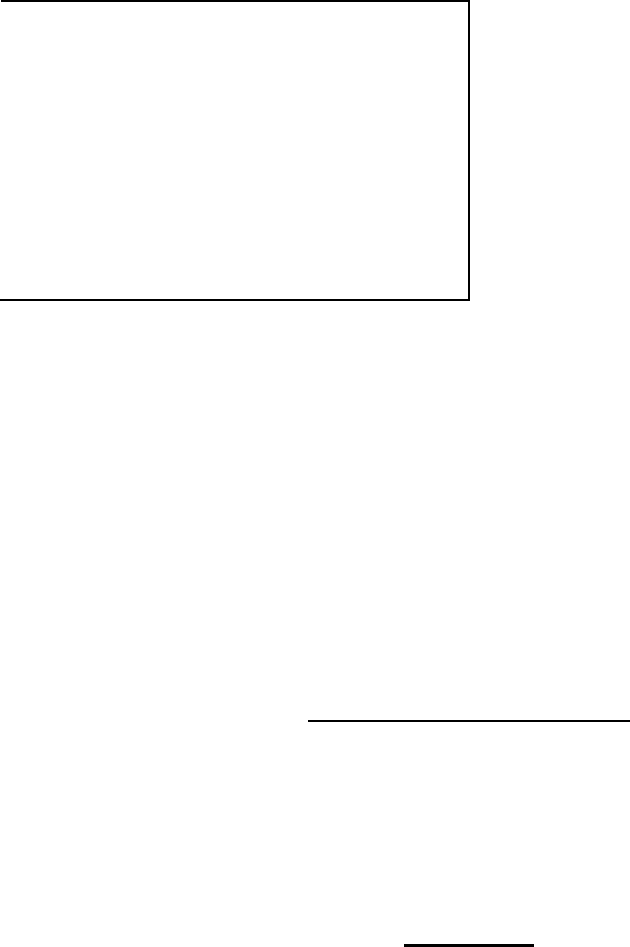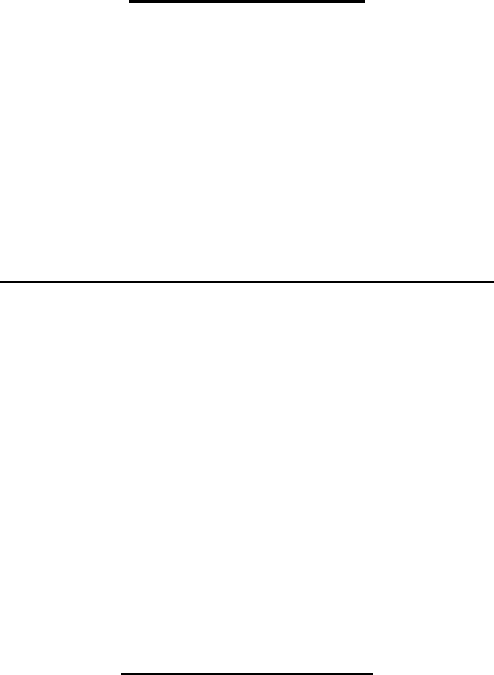
UNITED STATES DISTRICT COURT
SOUTHERN DISTRICT OF TEXAS
HOUSTON DIVISION
FEDERAL TRADE COMMISSION,
Plaintiff,
v.
VERMA HOLDINGS, LLC, and
RISHAB VERMA,
Defendants.
Civ. No.:
PLAINTIFF FEDERAL TRADE COMMISSION=S
COMPLAINT FOR PERMANENT INJUNCTION AND OTHER EQUITABLE RELIEF
Plaintiff, the Federal Trade Commission (AFTC@), for its Complaint alleges:
1. The FTC brings this action under Section 13(b) of the Federal Trade Commission
Act (AFTC Act@), 15 U.S.C. ' 53(b), to obtain temporary, preliminary, and permanent injunctive
relief, restitution, disgorgement of ill-gotten monies, and other equitable relief for Defendants=
acts or practices in violation of Section 5(a) of the FTC Act, 15 U.S.C. ' 45(a).
JURISDICTION AND VENUE
2. This Court has subject matter jurisdiction pursuant to 28 U.S.C. '' 1331, 1337(a),
and 1345, and 15 U.S.C. '' 45(a) and 53(b).
3. Venue is proper in this district under 28 U.S.C. ' 1391(b) and 15 U.S.C. ' 53(b).
PLAINTIFF
4. The FTC is an independent agency of the United States Government created by
statute. 15 U.S.C. '' 41-58. The FTC enforces Section 5(a) of the FTC Act, 15 U.S.C.
' 45(a), which prohibits unfair or deceptive acts or practices in or affecting commerce.
Case 4:13-cv-00594 Document 1 Filed in TXSD on 03/06/13 Page 1 of 9

2
5. The FTC is authorized to initiate federal district court proceedings, by its own
attorneys, to enjoin violations of the FTC Act and to secure such equitable relief as may be
appropriate in each case, including rescission or reformation of contracts, restitution, the refund
of monies paid, and the disgorgement of ill-gotten monies. 15 U.S.C. '' 53(b) and 56(a)(2)(A).
DEFENDANTS
6. Defendant Verma Holdings, LLC is a Texas limited liability company with its
principal place of business at 14601 Bellaire Blvd., Suite 202, Houston, Texas 77083. Verma
Holdings transacts or has transacted business in this district and throughout the United States.
7. Defendant Rishab Verma (AVerma@) is a member and manager of Verma
Holdings. At all times material to this Complaint, acting alone or in concert with others, he has
formulated, directed, controlled, had the authority to control, or participated in the acts and
practices of Verma Holdings, including the acts and practices set forth in this Complaint.
Defendant Verma resides in this district and, in connection with the matters alleged here,
transacts or has transacted business in this district and throughout the United States.
COMMERCE
8. At all times material to this Complaint, Defendants have maintained a substantial
course of trade in or affecting commerce, as Acommerce@ is defined in Section 4 of the FTC Act,
15 U.S.C. ' 44.
DEFENDANTS= BUSINESS ACTIVITIES
9. Defendants engage in and have engaged in the sending of unauthorized and
unsolicited commercial electronic text messages (Atext message spam@) to the mobile telephones
and other wireless devices of consumers throughout the United States.
Case 4:13-cv-00594 Document 1 Filed in TXSD on 03/06/13 Page 2 of 9

3
Background
10. Many mobile telephone and wireless device service providers operating in the
United States (Awireless service providers@) provide their subscribers with text messaging
services. Text messaging services permit the transmission of text messages to wireless handsets
from other wireless handsets, electronic mail accounts, and various Internet applications.
11. To transmit a text message to wireless handsets, a sender transmits the message
electronically, either directly or indirectly, through a wireless service provider=s text message
router, which then transmits the message to the recipient through the wireless service provider=s
interstate wireless network.
12. Text messaging is used by consumers to stay in touch with business colleagues
and associates, customers, family members, and friends. Text messaging is also used by
numerous employers, schools, police departments, fire departments, and emergency medical
services across the country.
Defendants= Text Message Spam
13. Since at least January 2012, and continuing thereafter, Defendants transmitted or
arranged for the transmission of at least four million unsolicited commercial electronic text
messages to the wireless handsets of U.S. consumers for the primary purpose of promoting
products and services, including purportedly free merchandise, such as $1,000 gift cards to
companies like Best Buy and VISA.
Case 4:13-cv-00594 Document 1 Filed in TXSD on 03/06/13 Page 3 of 9
4
14. Many of the unsolicited text messages represent, expressly or by implication, that
the consumer receiving the message has won a contest, or has been specially selected to receive a
gift or prize. For example, the text messages contain statements such as: AYour recent entry has
won! Go to http://bestbuyspree.com and enter your winning code: 6656 to claim your Free
$1000 BestBuy Gift Card@; or AYour recent entry has won! Go to http://rewardsonmobiles.com
and enter your winning code: 5555 to claim your Free $1000 VISA Gift Card within 24 hours!@
15. The text messages contain a link to a website address. Consumers who click on
the address link contained in the messages are transferred to a website operated by Defendants
where consumers are directed to enter the code appearing in the text messages. This website
prominently displays images of company logos, such as VISA or Best Buy, and reiterates the
promise of a free gift card with statements such as AGet a Free $1000 Best Buy Gift Card.@
16. When consumers follow the website=s direction and enter the code appearing in
the text messages, they sometimes receive a message congratulating the consumer and stating
ACongratulations! You Qualify for a Free $1000 Best Buy Gift Card.@ Thereafter, these
consumers are taken to one of various websites operated by third parties. Other consumers are
taken directly to the third-party websites immediately upon entering the code appearing in the
text messages. The third party websites reiterate and expand upon the initial promised free
merchandise offer.
17. The third party websites, however, require consumers to participate in multiple
other offers to qualify for the promised free merchandise. The consumer usually must complete
over 10 offers. In most cases, completing an offer entails paying money or incurring some other
detriment, such as qualifying and applying for credit cards. Some of the offers have free trial
Case 4:13-cv-00594 Document 1 Filed in TXSD on 03/06/13 Page 4 of 9

5
periods, but require consumers to participate for a minimum period of time to qualify for the
promised free merchandise. Many of these offers also contain negative option components in
which consumers who do not cancel will be billed automatically. In addition, to qualify for the
promised free merchandise, consumers are required to provide a variety of personal information,
including their name, mailing address, email address, date of birth, cell phone number, and home
phone number.
18. Defendants= text messages fail to clearly and conspicuously disclose that
consumers must incur expenses or other obligations to obtain the promised free merchandise.
The text messages also fail to clearly and conspicuously disclose the costs and obligations
associated with participating in the third-party promotions, such as applying and qualifying for
credit cards.
19. In most instances, it is not possible for a consumer to obtain the promised free
merchandise without spending money.
The Recipients of Defendants= Text Message Spam
20. Many, if not all, of the consumers who received the text message spam sent by
Defendants never agreed to be contacted by Defendants.
21. Some of the recipients of Defendants= text message spam have wireless service
plans that require them to pay a fixed fee for each text message received by their wireless
handsets. Accordingly, such recipients were required to pay a fee for the receipt of Defendants=
text message spam.
22. Other recipients of Defendants= text message spam have wireless service plans
that allow them a fixed, limited number of text messages per month without charge beyond their
Case 4:13-cv-00594 Document 1 Filed in TXSD on 03/06/13 Page 5 of 9

6
monthly service charge, with text messages that exceed the monthly allowance billed on a
per-message basis. Accordingly, many such recipients had their monthly allowance of text
messages reduced upon receipt of each of Defendants= text message spam.
23. The consumer injury caused by Defendants cannot be reasonably avoided by
consumers. Defendants= text message spam is routinely foisted upon consumers without their
advance knowledge or permission. Many consumers who have requested that Defendants stop
sending them text message spam continued to receive text message spam after making the
request.
24. Defendants= text message spam does not create countervailing benefits to
consumers or to competition that outweigh the harm caused by their unlawful activity.
VIOLATIONS OF THE FTC ACT
25. Section 5(a) of the FTC Act, 15 U.S.C. ' 45(a), prohibits Aunfair or deceptive acts
or practices in or affecting commerce.@
26. Misrepresentations or deceptive omissions of material fact constitute deceptive
acts or practices prohibited by Section 5(a) of the FTC Act.
27. Acts or practices are unfair under Section 5 of the FTC Act if they cause
substantial injury to consumers that consumers cannot reasonably avoid themselves and that is
not outweighed by countervailing benefits to consumers or competition. 15 U.S.C. ' 45(n).
Count I
28. Through the means described in Paragraphs 13-19, Defendants have represented,
directly or indirectly, expressly or by implication, that consumers have won a contest or have
been specifically selected to receive a gift or prize that is without cost or obligation.
Case 4:13-cv-00594 Document 1 Filed in TXSD on 03/06/13 Page 6 of 9
7
29. In numerous instances in which Defendants have made the representation set forth
in Paragraph 28 of the Complaint, Defendants have failed to disclose or disclose adequately to
consumers the material terms and conditions of the offer, including:
a. that consumers must pay money or other consideration to receive the gift
or prize; and
b. the costs and obligations to receive the gift or prize.
30. Defendants= failure to disclose or disclose adequately the material information
described in Paragraph 29 above, in light of the representation described in Paragraph 28 above,
constitutes a deceptive act or practice in violation of Section 5(a) of the FTC Act, 15 U.S.C.
' 45(a).
Count II
31. In numerous instances, Defendants= practice of initiating or procuring the
transmission of unauthorized or unsolicited commercial electronic text messages to the mobile
telephones and other wireless devices of consumers in the United States has caused or is likely to
cause substantial injury to consumers that consumers cannot reasonably avoid themselves and
that is not outweighed by countervailing benefits to consumers or competition.
32. Therefore, Defendants= practice as described in Paragraph 31 is unfair and violates
Section 5 of the FTC Act, 15 U.S.C. '' 45(a) and 45(n).
Case 4:13-cv-00594 Document 1 Filed in TXSD on 03/06/13 Page 7 of 9

8
CONSUMER INJURY
33. Consumers have suffered and will continue to suffer substantial injury as a result
of Defendants= violations of the FTC Act. In addition, Defendants have been unjustly enriched
as a result of their unlawful acts or practices. Absent injunctive relief by this Court, Defendants
are likely to continue to injure consumers, reap unjust enrichment, and harm the public interest.
THIS COURT=S POWER TO GRANT RELIEF
34. Section 13(b) of the FTC Act, 15 U.S.C. ' 53(b), empowers this Court to grant
injunctive and such other relief as the Court may deem appropriate to halt and redress violations
of any provision of law enforced by the FTC. The Court, in the exercise of its equitable
jurisdiction, may award ancillary relief, including rescission or reformation of contracts,
restitution, the refund of monies paid, and the disgorgement of ill-gotten monies, to prevent and
remedy any violation of any provision of law enforced by the FTC.
PRAYER FOR RELIEF
Wherefore, Plaintiff FTC, according to Section 13(b) of the FTC Act, 15 U.S.C. ' 53(b),
and the Court=s own equitable powers, requests that the Court:
A. Award Plaintiff such preliminary injunctive and ancillary relief as may be
necessary to avert the likelihood of consumer injury during the pendency of this action and to
preserve the possibility of effective final relief, including, but not limited to, temporary and
preliminary injunctions, an order preserving assets, and an accounting;
B. Enter a permanent injunction to prevent future violations of the FTC Act by
Defendants;
Case 4:13-cv-00594 Document 1 Filed in TXSD on 03/06/13 Page 8 of 9

9
C. Award such relief as the Court finds necessary to redress injury to consumers
resulting from Defendants= violations of the FTC Act, including, but not limited to, rescission or
reformation of contracts, restitution, the refund of monies paid, and the disgorgement of
ill-gotten monies; and
D. Award Plaintiff the costs of bringing this action, as well as such other and
additional relief as the Court may determine to be just and proper.
Dated: March 6, 2013 Respectfully submitted,
Dallas, Texas
DAVID SHONKA
Acting General Counsel
DEANYA T. KUECKELHAN
Regional Director
s/ Eliseo N. Padilla
Eliseo N. Padilla, Attorney-in-Charge
Florida Bar Number 0192929
James E. Elliott
Texas Bar Number 06557100
S.D. Texas #14
Attorneys for Plaintiff
Federal Trade Commission
1999 Bryan Street, Suite 2150
Dallas, Texas 75201
(214) 979-9382 (Mr. Padilla)
(214) 979-9373 (Mr. Elliott)
(214) 979-9350 (Office)
(214) 953-3079 (Facsimile)
Case 4:13-cv-00594 Document 1 Filed in TXSD on 03/06/13 Page 9 of 9
